Nobody likes having cold fingers on the slopes, and a warm pair of ski gloves can be a game-changer. There are seemingly endless designs on the market. Choosing a high-quality pair that’s ergonomic, reliable, fits well, and will last through the seasons is essential.
While assessing ski gloves, we consider the product’s insulation, waterproofness, and durability. We also field test the malleability, ergonomics, and dexterity. Ultimately, the comfort, cut, overall fit, liner, and value are huge in our book. We also consider the accessory details, including the nose wipe, vents, wrist leash, cinch, eyelets, and carabiners. We test every pair of ski gloves in various conditions over many wintry days and sports.
This list includes our favorite all-around ski gloves, such as the Swany Men’s X-Cell Glove and Black Diamond Guide Gloves, as well as what we’d use on a tight budget or as a backup: the Kinco Lined Heavy-Duty Premium Grain Ski Glove with Omni-Cuff.
Editor’s Note: We updated our Ski Gloves buyer’s guide on August 22, 2025, to include the field-tested Flylow Wolverine Glove.
The Best Ski Gloves of 2025
Best Overall Ski Gloves
9.7/10 Rating
Best Budget Ski Gloves
6.5/10 Rating
Most Supple & Flexible Ski Gloves
9/10 Rating
Best Heated Ski Gloves
7.3/10 Rating
Best Ski Gloves for Touchscreen Capability
7.9/10 Rating
Best Ski Gloves With Ski Pole Attachment
8.9/10 Rating
Best Ski Gloves With Liners
9.2/10 Rating
See more picks
Best Overall Ski Gloves
-
Extremely durable -
Super warm — we never go in the backcountry without this pair -
100% waterproof -
Friendly price for the excellent value
-
Too warm for those sunny 40-degree spring mogul days
Most Supple & Flexible Ski Gloves
-
Generously long suede nose wipe on both thumbs -
10K/10K breathable/waterproof liner -
Malleable and rather dexterous -
Insulation adds warmth
-
Cosmetic wear and tear early in use -
Gauntlet requires layering management — not everyone’s first choice
Best Heated Ski Gloves
-
Solid battery life -
Performance fit and build -
Three unique warmth settings -
Touchscreen compatible
-
A little heavy due to the dual batteries -
Narrow fit for average to large hands
Best Ski Gloves for Touchscreen Capability
-
Great dexterity -
Touchscreen capability works really well
-
Not the most durable palm zone but gets the job done -
Doesn’t offer enough warmth for below-freezing temps
Best Ski Gloves With Ski Pole Attachment
-
Super-warm glove for most days -
Long enough gauntlet to keep out snow -
Extremely durable leather -
Connects to LEKI ski poles with the Trigger System loop
-
Gauntlet doesn’t fit beneath most ski jacket cuffs
Best Ski Gloves With Liners
-
Durable, moderately stiff and supportive -
Customizable glove through add-ons -
Interior pocket for goggle wipe -
Removable, washable liner
-
Pricier option -
Some skiers and rider prefer an undercuff design -
Not the most malleable ski glove out of the box
Other Ski Gloves Shielding Our Digits
-
Very warm -
Durable -
Long, comfortable cuffs
-
Durable goatskin construction -
Protective design -
Dexterous performance-oriented fit -
Unique strapless ski pole attachment system
-
Not fully waterproof -
Need compatible LEKI poles to utilize strap-free ski pole system
-
Great glove for protection while working hard skinning uphill or on warm spring days -
Lower price point
-
Need more warmth for cold days -
If you sweat out this glove on the climb, consider bringing a dry pair for the downhill
-
Very warm -
Removable liner with its own insulation -
Enough dexterity for ski guides
-
Perfect warmth-to-dexterity ratio -
Durable -
Warm
-
Not for use in extreme cold
-
Trigger S loop clips to compatible Leki ski poles -
Warm -
Durable leather
-
Difficult to put on and take off -
Requires compatible poles for best performance
-
Streamlined and well-fitted -
Soft wool interior -
Generous suede nose wipe on each thumb
-
Lacks wrist loop for quick pull-on -
Soft leather tab on wrist closure curls up
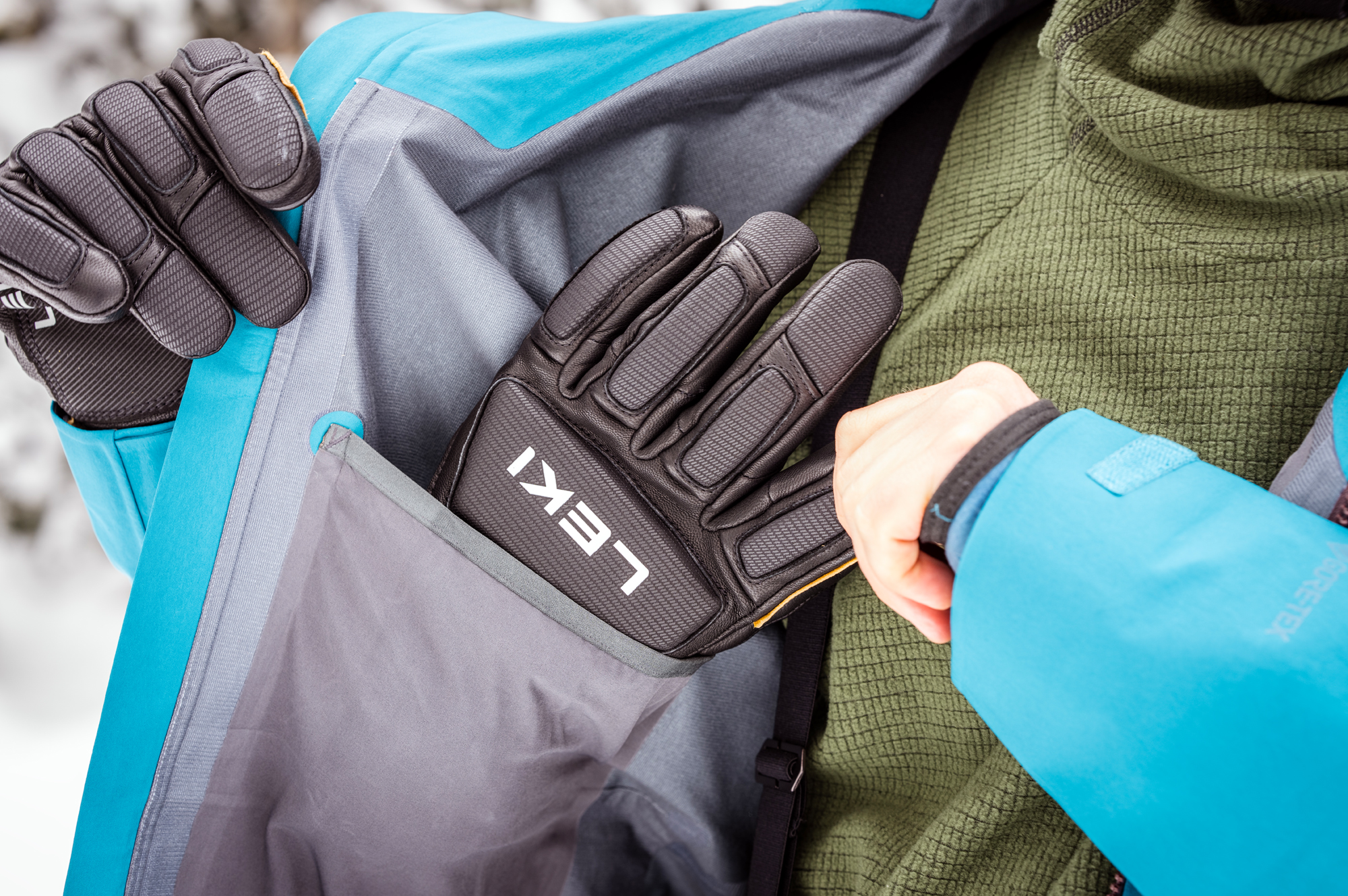
Ski Gloves Comparison Chart
Scroll right to view all of the columns: Price, Shell/Material, Cuff Type, Warmth.
| Glove | Price | Shell/Material | Cuff Type | Warmth |
| Swany X-Cell Glove | $180 | LeatherShield & Nubuck Leather plus Triplex-Alpha insulation | Double gauntlet | 9.5/10 |
| Kinco Lined Heavy-Duty Ski Glove | $54 | Suede and full-grain pigskin | Elastic knit undercuff | 6/10 |
| Flylow Super D Glove | $125 | Goatskin leather exterior, 100% polyester cuff, brushed tricot polyester liner, Greenloft insulation | Gauntlet | 7/10 |
| Outdoor Research Prevail Heated GORE-TEX Gloves | $359 | Polyester ripstop outer material with goat leather palm and EnduraLoft insulation | Gauntlet | 10/10 |
| Dakine Impreza GORE-TEX Glove | $75 | 61% recycled polyester, 39% polyester with PFC-free DWR, 220g fleece liner, ePE GORE-TEX waterproof insert that’s PFC-free | Short gauntlet | 7/10 |
| LEKI Xplore S | $140 | 100% leather goatskin, waterproof, PrimaLoft insulation | Double gauntlet | 8/10 |
| Baist Gloves Women’s Baist Classic Glove | $180 | Goatskin leather exterior topped with microfiber nose wipe, Cordura gauntlet, and a Thinsulate-Thermolite synthetic insulation liner | Gauntlet | 8.5/10 |
| Black Diamond Guide Gloves | $180 | Nylon shell with goat leather palm | Gauntlet | 9/10 |
| LEKI Griffin Pro 3D | $160 | Goat leather with water-resistant neoprene cuff and synthetic reinforcements, PrimaLoft insulation | Neoprene with pull strap | 8/10 |
| Outdoor Research Women’s Sureshot Pro Gloves & Men’s Sureshot | $65 | 2L 2-way stretch woven nylon and spandex, goat leather palm, EnduraLoft 100% polyester insulation, brushed tricot lining | Undercuff | 6/10 |
| Oruki Arashi Guide GTX Glove | $180 | Pittards Armor-Tan goatskin leather and four-way stretch softshell | Long gauntlet | |
| Gordini Men’s Cache Gauntlet Glove | $95 | Waterproof, Bluesign-approved nylon canvas, synthetic leather fingers and reinforcements, 100% recycled and Bluesign-approved PrimaLoft insulation | Gauntlet with drawcord closure and leash | 7/10 |
| LEKI Copper S Ski Gloves | $120 | Goatskin and water-resistant neoprene plus polyester fiberloft insulation | Adjustable undercuff with Velcro closure | 7.5/10 |
| Flylow Wolverine Glove | $120 | Goatskin leather | Undercuff |
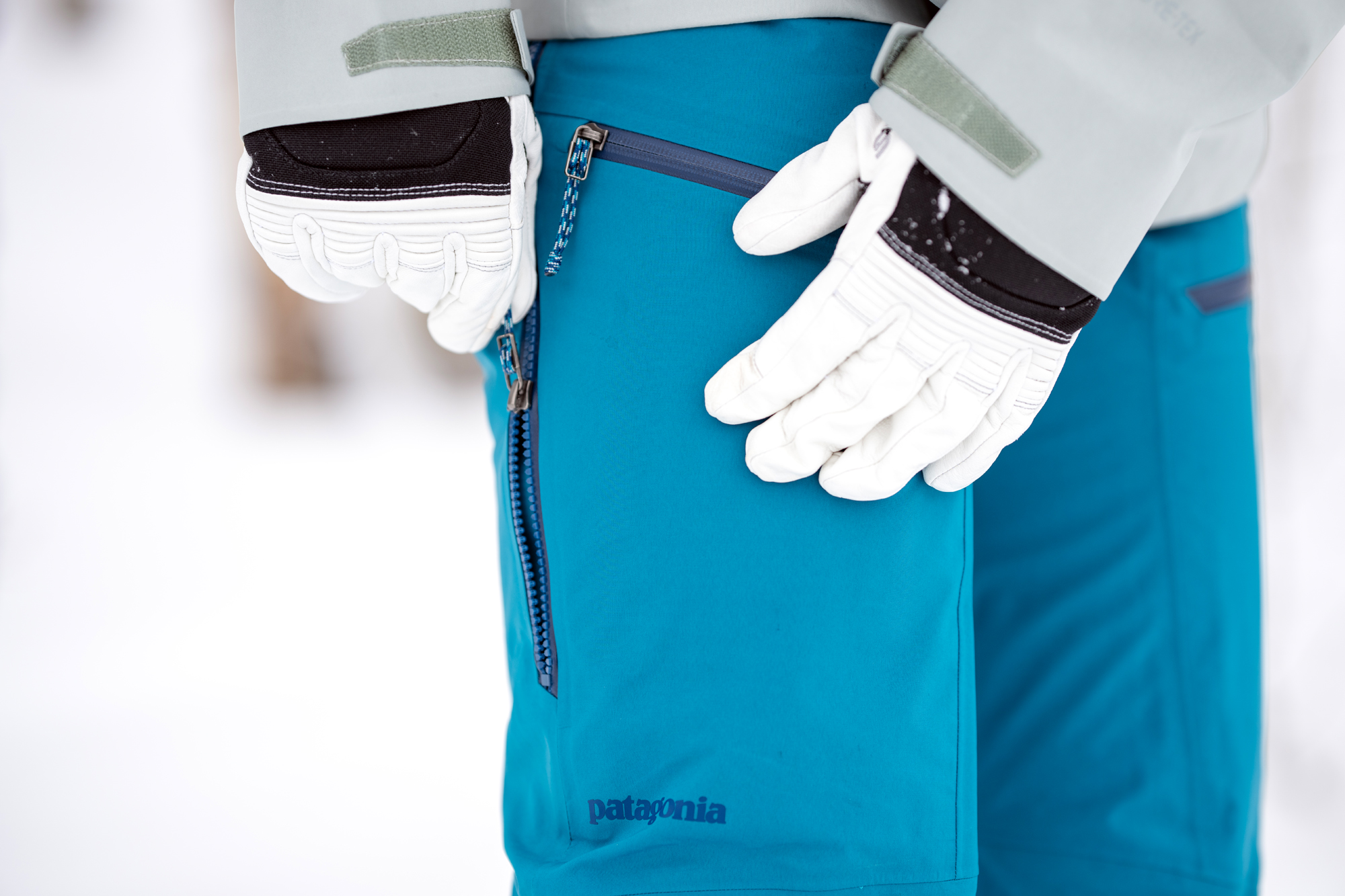

How We Tested Ski Gloves
Our Expert Testers
GearJunkie Senior Editor Morgan Tilton specializes in snowsports and is based in Crested Butte, Colo. She grew up in the mountains of Southwest Colorado, where she explored local ski areas and the backcountry. She’s been beating up ski gloves for more than thirty years.
In 2025, Tilton tested ski gloves (versus mittens) for 135 hours across 600 miles and 161,200 vertical feet, which includes plenty of temperature and weather variation. In 2024, she tested pairs during 216 hours of recreation. She tested pairs on 59 days and 177 hours of recreation the year prior. Those digits don’t include the countless hours of shoveling or commutes in Crested Butte.
Gear tester Heather Balogh Rochfort is a writer and editor based outside Aspen, Colo. Other testers for this guide include Matt Hart, Austin Beck-Doss, Will Brendza, Sean McCoy, and professional ski guide Kaylee Walden.
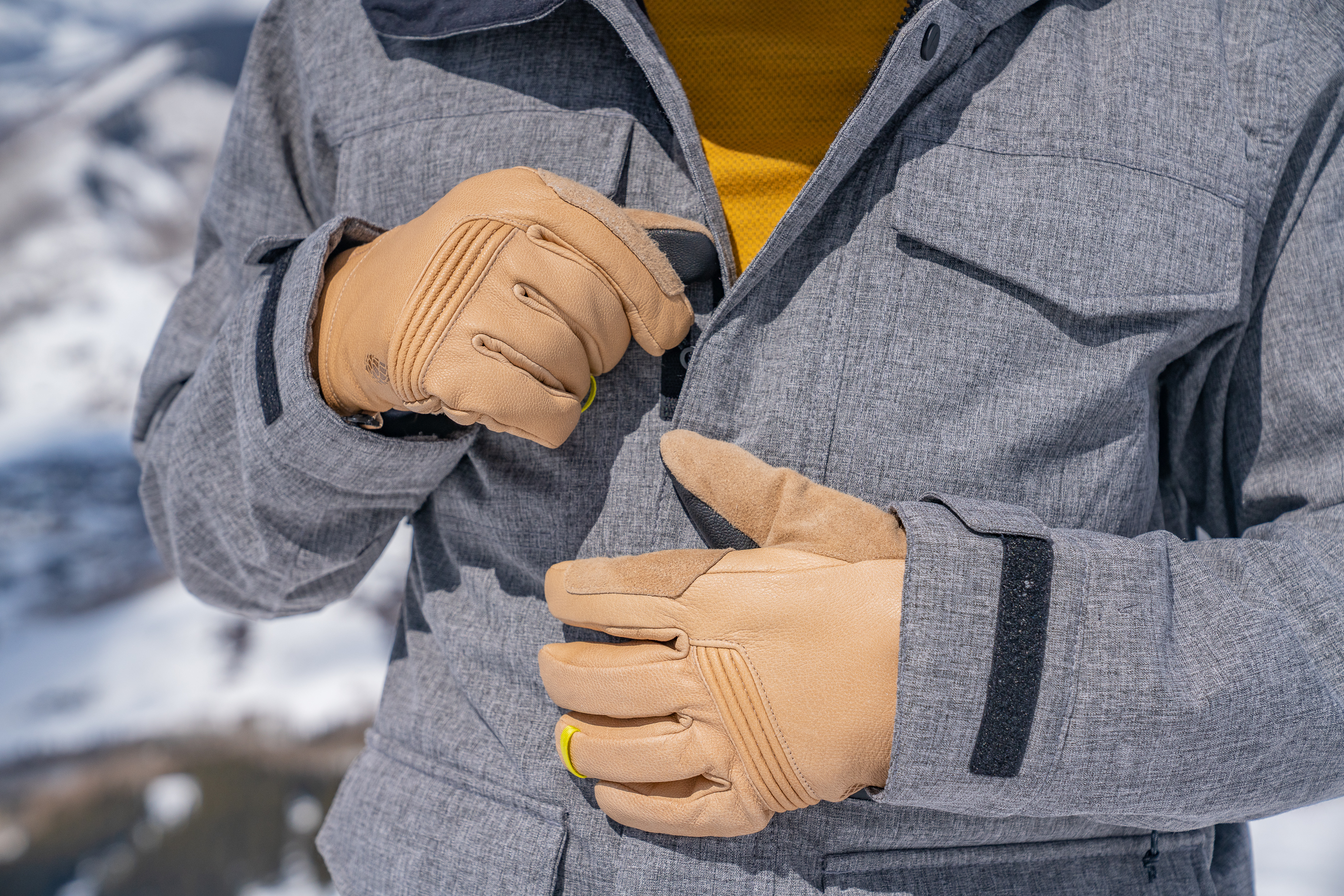

Our Testing Grounds
Today, Tilton primarily tests ski gloves in the harsh, teeth-chattering conditions of Crested Butte, Colo., and Gunnison Valley.
Other contributors to this guide include Austin Beck-Doss, who is based in the hardy state of Wyoming, and Colorado-based Editorial Director Sean McCoy. GearJunkie Section Editor Will Brendza lives in Colorado. Walden, who travels all over the world ski guiding, makes his home in Southwest Colorado. Contributor and diehard ski tester Matt Hart hails from Mount Washington Valley, N.H.
Our Testing Process
While Austin Beck-Doss initially wrote this guide in 2021, our team resurrected it in October 2023, with additions based on lifelong testing done by Senior Editor Morgan Tilton, who started skiing at age 4. In 2024, gear tester Matt Hart joined the ski glove testing ring along with GearJunkie editors.
The GearJunkie team has gathered twice annually for a ski week at Crested Butte Mountain Resort in 2022 and 2023.
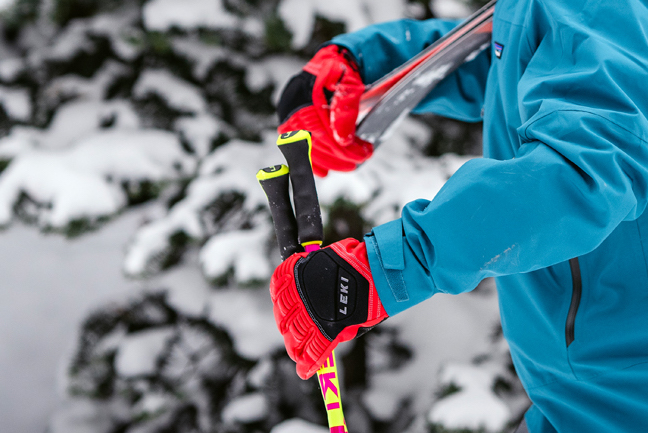

Buyer’s Guide: How to Choose Ski Gloves
We consider ski gloves in three buckets: resort days, backcountry outings, and nordic workouts.
Resort Ski Gloves
Most people prefer durable, warm, and waterproof gloves for downhill skiing at the resort. Though skiers could use all styles on this list at a resort, some are better suited for Nordic or backcountry skiing.
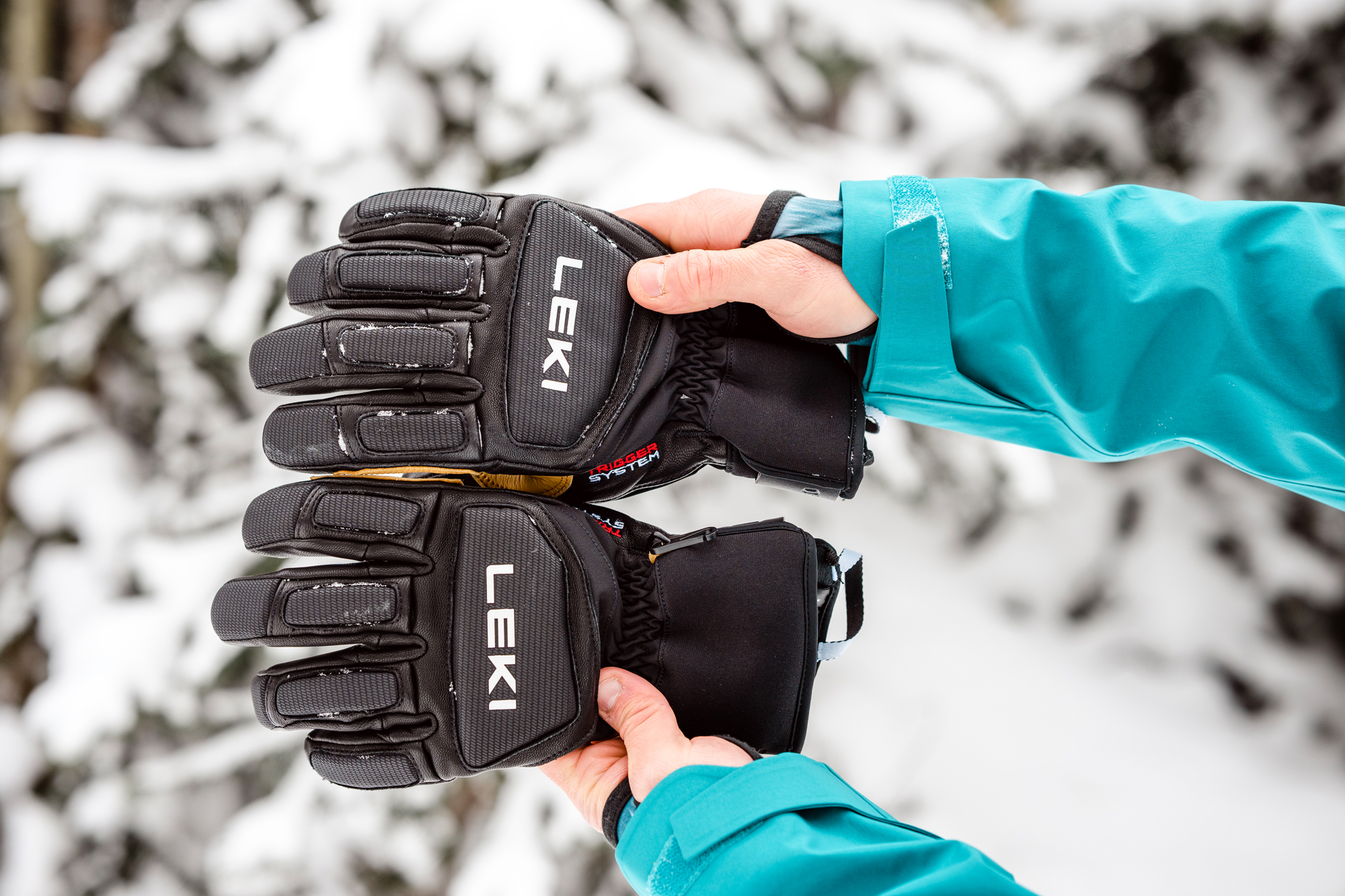

Backcountry Ski Gloves
Backcountry skiing involves uphill travel and prolonged exposure to the elements. Thanks to its versatility, gloves with removable outer shells are generally ideal for the backcountry. When skinning uphill, shedding a few layers is common.
Removing your glove’s outer shell and wearing a liner can prevent your hands from overheating and sweating. When the temps drop and the snow begins falling, put the outer shell back on for maximum warmth and protection.
Better yet, choose two pairs of gloves for backcountry days: a lighter pair for uphill travel and a warmer, more insulated pair for the descent or, at the very least, to have stashed for emergencies. Backcountry skiing gloves should also have reasonably long cuffs that can successfully prevent snow from entering at the cuff.
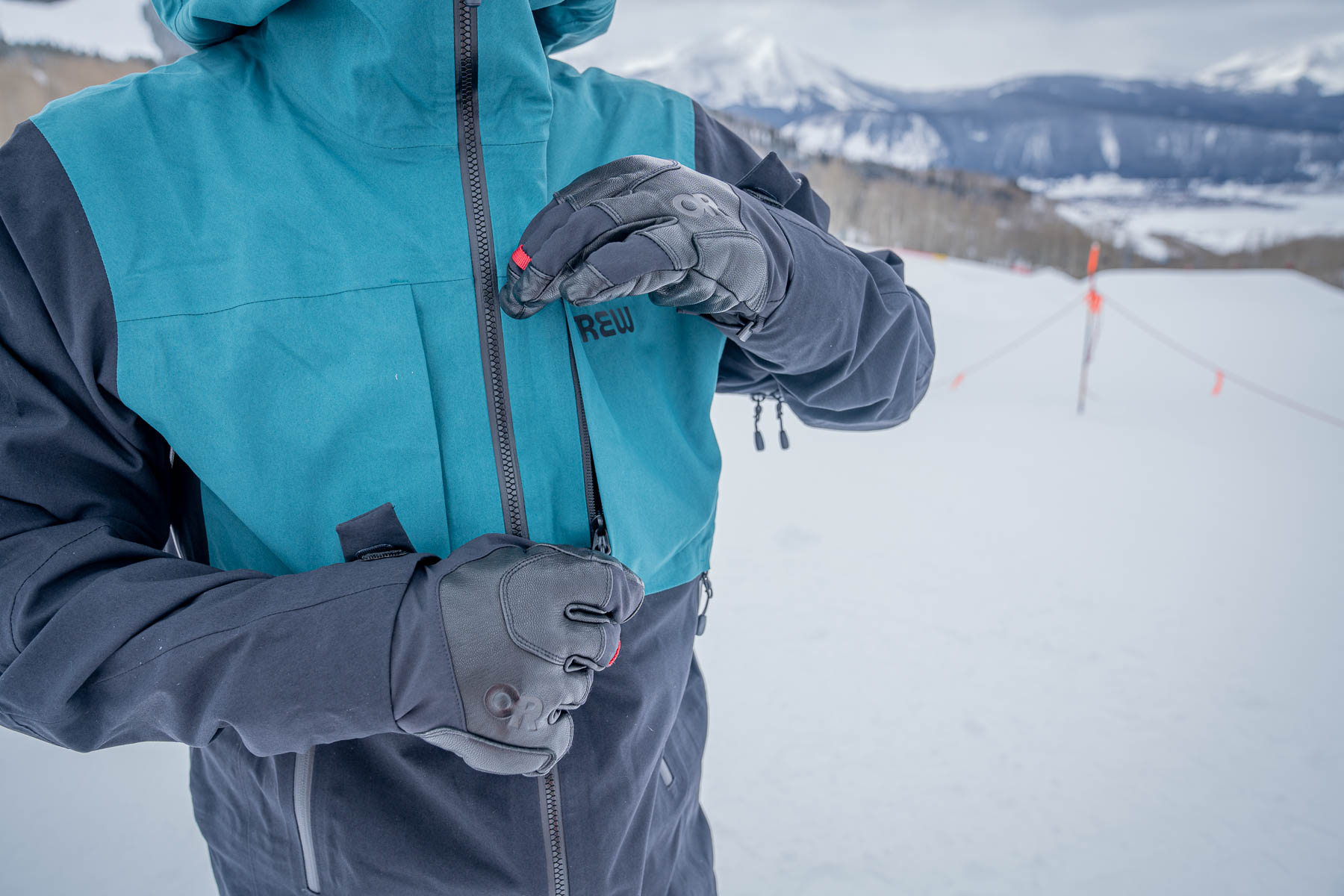

Nordic Ski Gloves
Nordic skiers commonly wear relatively lightweight and nimble gloves. Because skate and classic Nordic skiing typically involve high cardio, heat-building movement tends to occur on trails at lower elevations than backcountry travel, and burly shells and thick insulation are often unnecessary. We recommend wearing gloves that make you feel warm and comfortable.
Ski Gloves vs. Winter Mittens
Choosing between gloves and mittens is a matter of personal preference. Each option has pros and cons, and it is important to understand these before making a decision.
Gloves offer improved dexterity but reduced warmth. Because every finger can move independently while wearing gloves, this option is better for gripping ski poles, swinging ice axes, or performing manual labor. Mittens are very warm, but they do reduce dexterity.
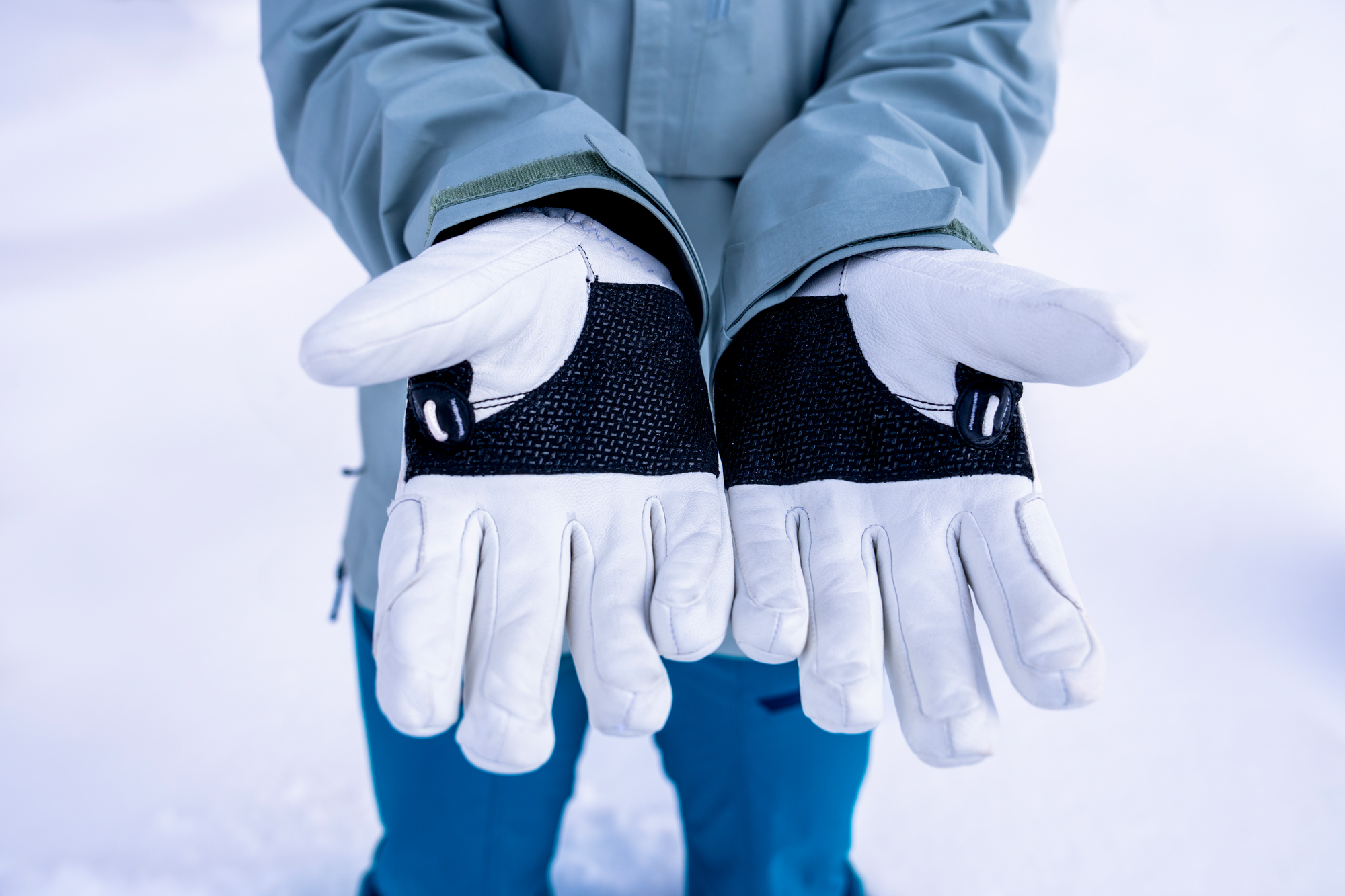

Warmth & Insulation
Keeping your hands warm on the mountain is a ski glove’s primary job. Brands advertise almost all ski gloves as ‘warm,’ but some gloves provide much more warmth than others. Suppose you tend to have uncomfortably cold fingers while skiing, a warm or heated pair of ski gloves is an invaluable investment. When the temps dip into the teens and single digits, there is no substitute for hand protection.
Every glove on this list includes some form of insulation. Most modern ski gloves have synthetic fill. While some gloves specify the exact weight of its insulation, fill weight isn’t always the best way to measure genuine warmth.
Though many brands create great results with their own synthetic insulation, PrimaLoft remains the gold standard. As always, trying on gloves is the best way to assess warmth and overall comfort.
If top-notch gloves still aren’t enough to keep your extremities happy, mittens or heated gloves could be a better choice. Mittens heat more effectively by keeping your fingers close to one another. Heated gloves have a built-in battery and heating element that produces electric heat from within.
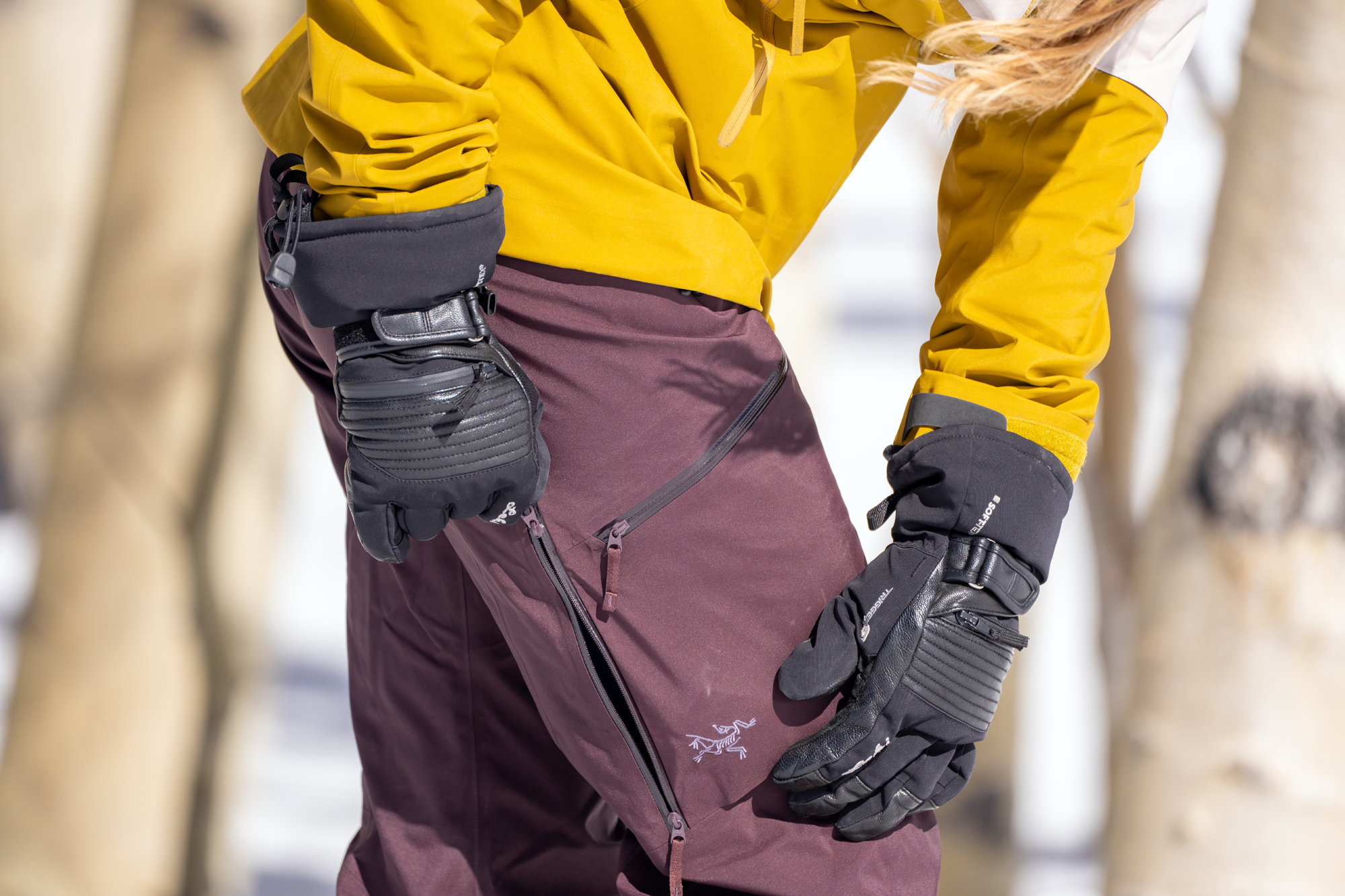

Waterproofing: Ski Gloves
After warmth, waterproofness is the most essential quality of ski gloves. In most mountain conditions, wet hands are cold hands, and reliable waterproofing is absolutely essential in snowy and stormy environments.
Gloves that are truly waterproof will have a built-in membrane between the shell and the liner. Though many brands produce their own membranes, GORE-TEX is the most widely recognized name in waterproof outerwear. If you plan to regularly wander into wet territory, we think it’s worthwhile to go with GORE-TEX gloves.
As always, truly waterproof gear tends to come with a decrease in breathability. Waterproofing isn’t usually a massive issue with gloves since hands don’t tend to overheat as readily as the torso and core. However, hot and sweaty hands can become wildly uncomfortable when skiing in warm weather or skinning uphill.
A few solutions exist for this problem. First, you can opt for a ski glove with less insulation on warm spring days and while skinning uphill. Some designs have vents on the upper side to allow a window for heat to release at the top of the hand.
Another option is to choose a design that pairs a glove shell with an interior liner or add your own. Pop off the outer shell for increased breathability and dexterity when the going gets warm. When the storm rolls in again, put the shells back on for full-strength waterproofing. We have included several pairs of gloves with removable liners on this list.
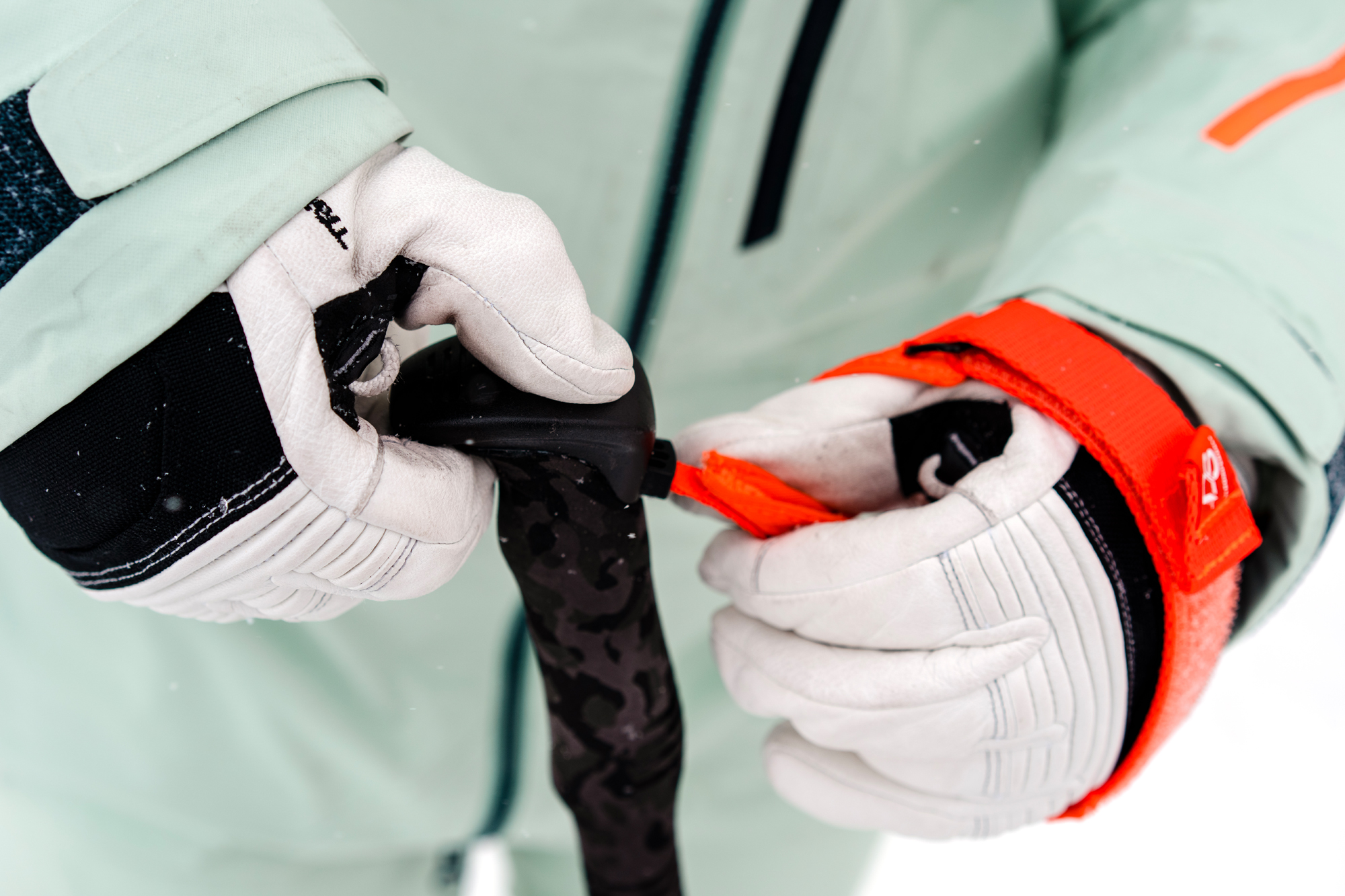

Dexterity & Phone Compatibility
Trying to manipulate your fingers while wearing ski gloves can be frustrating. Unfortunately, warm insulation and burly outer shells seriously reduce the human hand’s dexterity. However, some ski gloves are certainly more dexterous than others. Generally, gloves with less insulation tend to be more dexterous.
Removable glove shells with a liner beneath offer a simple solution to the dexterity problem. Standalone liners provide improved dexterity without fully exposing bare skin to cold air.
Pulling your ski gloves off to operate your phone can be annoying and potentially dangerous. To avoid this, look for a pair of gloves with touchscreen compatibility. Touchscreen-capable gloves use a special material on the fingertips that lets your phone screen respond.
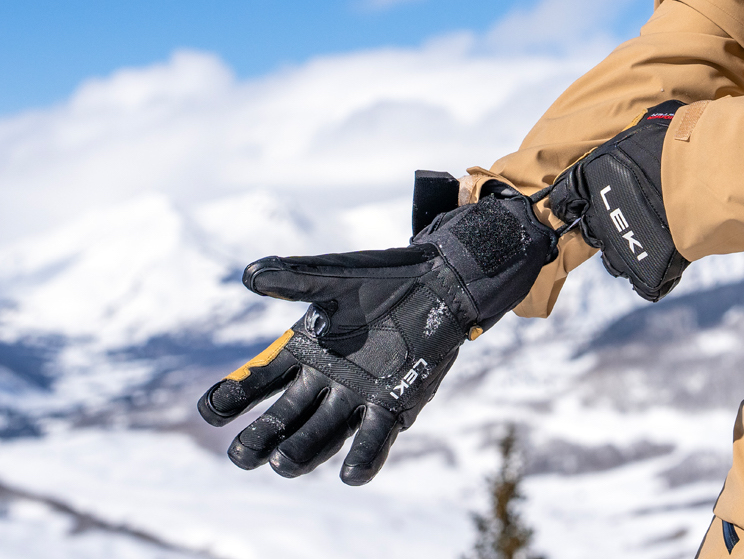

Cuffs on Ski Gloves
There are two primary styles of ski glove cuffs: gauntlet and undercuff.
Gauntlet-style cuffs extend beyond your wrist and sit outside your ski jacket. A double gauntlet offers two tiers for extra length and is a bit more streamlined than a single, super-tall gauntlet.
Generally, gauntlet cuffs are ideal for cold or super powdery conditions, as they are often insulated and can seal out cold air with a drawcord. They can also block snow from flying inside your glove. If you regularly ski in deep powder or wet conditions, we recommend a pair of gloves with long gauntlet-style cuffs.
Undercuffs are shorter, streamlined cuffs that tuck more easily under your ski jacket sleeve. This style is less bulky than gauntlets, which results in better wrist dexterity but slightly reduced warmth and protection against the elements.


Durability & Materials
Ultimately, a ski glove’s durability comes down to its construction and materials. The longest-lasting gloves feature polyester or nylon outer shells with high-quality leather palms.
The downside of gloves made with leather is that they require regular maintenance. A waterproofing treatment such as Sno-Seal or Nikwax can significantly help maintain the waterproofing ability and general quality of a pair of leather ski gloves. Leather gloves also feel stiffer and take longer to break in than synthetic materials, which feel great out of the box.
Synthetic leather feels and looks a lot like authentic leather. It’s softer, more malleable, and offers great durability. However, the material does not outlast leather, which is superior in tenacity.
Many thin, lightweight ski gloves use wool, fleece, nylon, and leather. Though fleece and wool gloves can be sufficient for warm and wind-free conditions and Nordic skiing, we recommend gloves with waterproof membranes and durable outer shells for most skiing purposes.
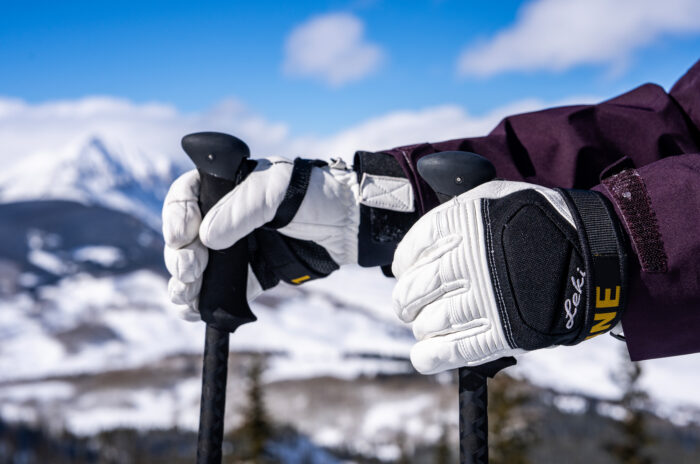

Ski Glove Sizing
Ski glove sizing is inconsistent. In other words, a size small in one brand may be a medium in another. At a single brand, a size small in the women’s category might not match the size small for men, or they might have mirrored dimensions.
Most brands offer a sizing chart to help you decide which size to buy, so measure your hand according to the directions. If possible, we also recommend trying on a ski glove in person.
Ideally, your ski gloves should feel snug — not tight or restrictive. There should be less than a centimeter of open space at the tip of each finger, and the material should resist minimally when you make a fist.
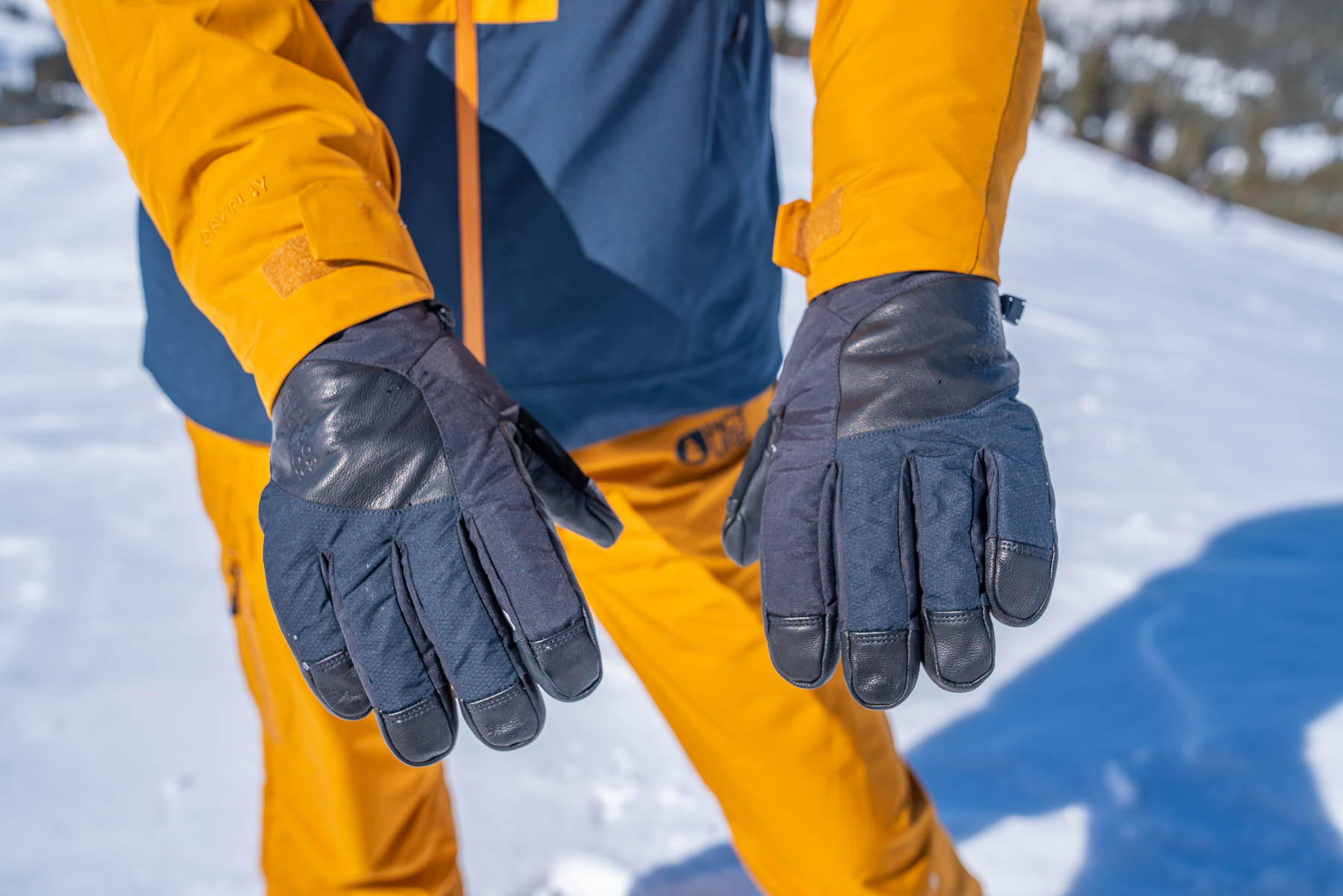

Price & Value
If you seek top-notch warmth, expect to pay at least $100. Though cheaper gloves can be well-made, they generally don’t insulate your hands in the coldest conditions.
Budget: Less Hefty Ski Gloves
All of our favorite picks under $100 sacrifice insulation, waterproofness, and wrist coverage compared to our other picks. For instance, the Hestra Windstopper Tour ($75) is our choice ski glove for Nordic skiing, and while the glove is breathable, it’s inherently less durable, hefty, or waterproof.
Among the best deals for alpine skiing is the Outdoor Research Women’s Sureshot Pro Gloves, which has a goat leather palm and EnduraLoft 100% polyester insulation. These gloves are great for backcountry skiing when building body heat, and don’t need emergency-level heat. You’re getting a two-layer stretchy construction that’s not as dense or durable in higher-cost designs — but it’s still a killer glove for the right conditions and activity.
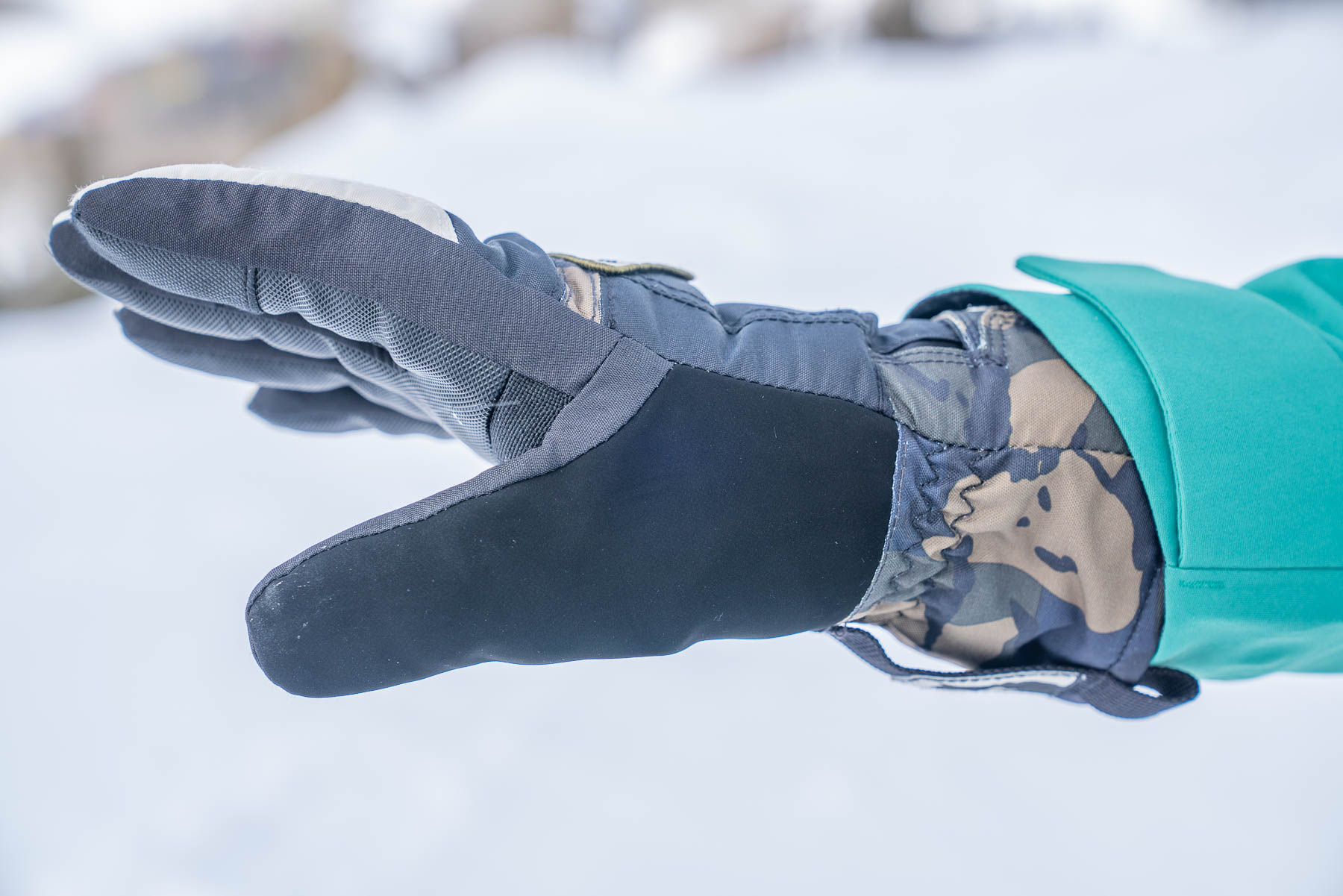

Mid-Tier Ski Gloves: Excellent Durability & Insulation
Most of our favorite gloves cost $100-200. We’re delighted with ski gloves like the Black Diamond Guide Gloves, Swany X-Cell Men’s Glove, and Baist Gloves Women’s Baist Classic Glove, all of which are $180.
These designs offer top-notch leather blends with reinforcements, soft nose wipes, and well-functioning cuff closures. The long-lasting construction provides plenty of heat and waterproofness. The dexterity is excellent, too, for the amount of protection.
Premium: Top-Tier Insulation & Technology
If you’re buying a pair of ski gloves above $200, you’re investing in some serious technology. The Outdoor Research Prevail Heated GORE-TEX Gloves ($359) are not only built to be durable, comfortable, and waterproof but also integrate a battery-powered heat that works with a rechargeable battery. The gloves also have touchscreen capability, which is hard to find in the warmest five-finger gloves.
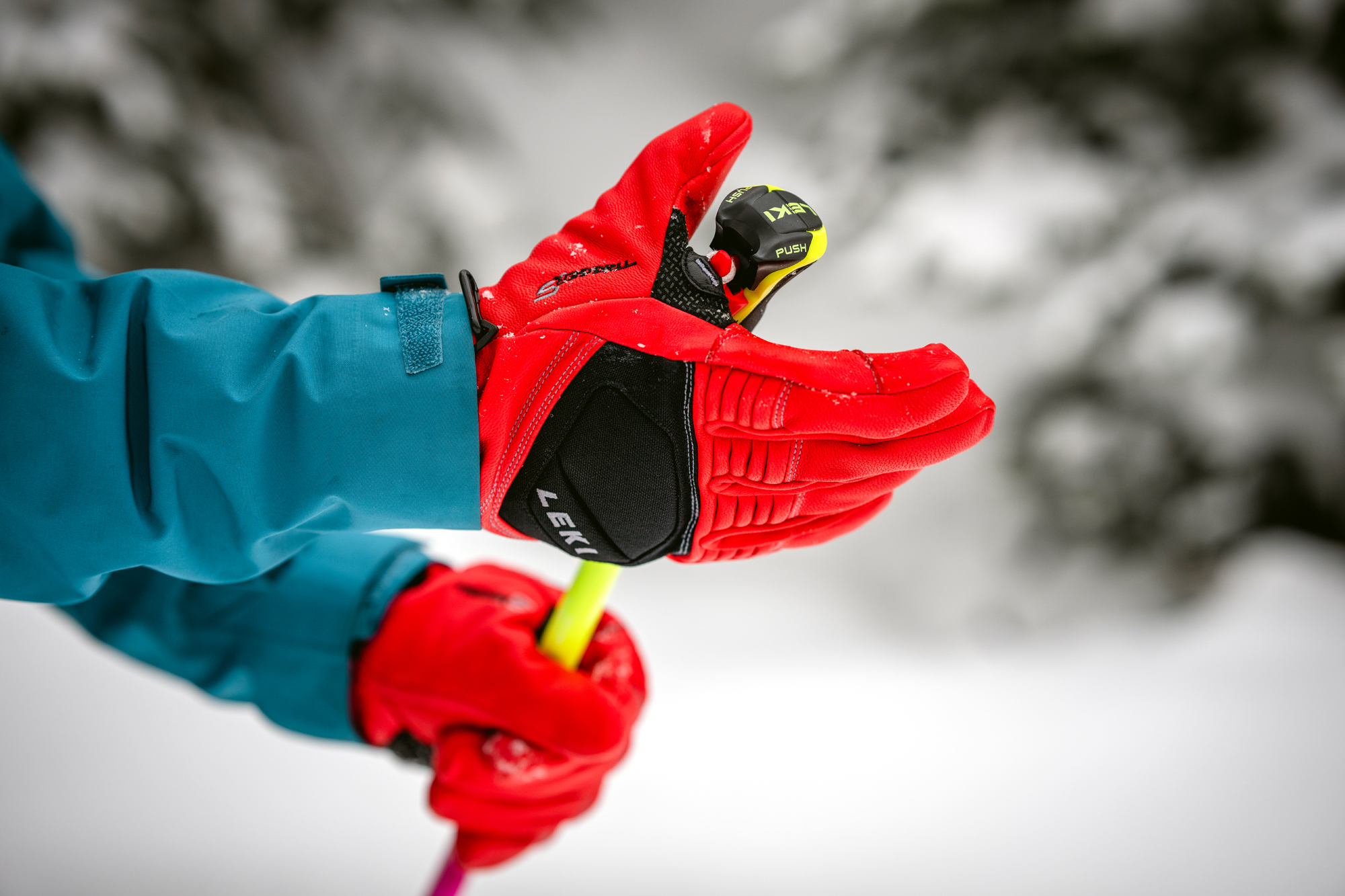

Frequently Asked Questions
Our top ski gloves range from $54 to $359. On this list, we have included options across a range of budgets without sacrificing baseline quality. The general price for most of our favorites is closer to $150.
Generally, more economical gloves will be less warm, durable, and waterproof than more expensive and higher-quality options.
Most high-performing gloves cost at least $100. If you seek battery-operated heated gloves, expect to pay at least $150.
The warmest ski gloves come with built-in battery-operated heating elements. While heated gloves are great for frigid conditions and people with chronically cold hands, they aren’t necessary for most skiers.
If you are seeking super-warm gloves without an integrated battery, look for lots of insulation, a waterproof membrane, and a gauntlet-style cuff. If that doesn’t do the trick, consider a pair of mittens.
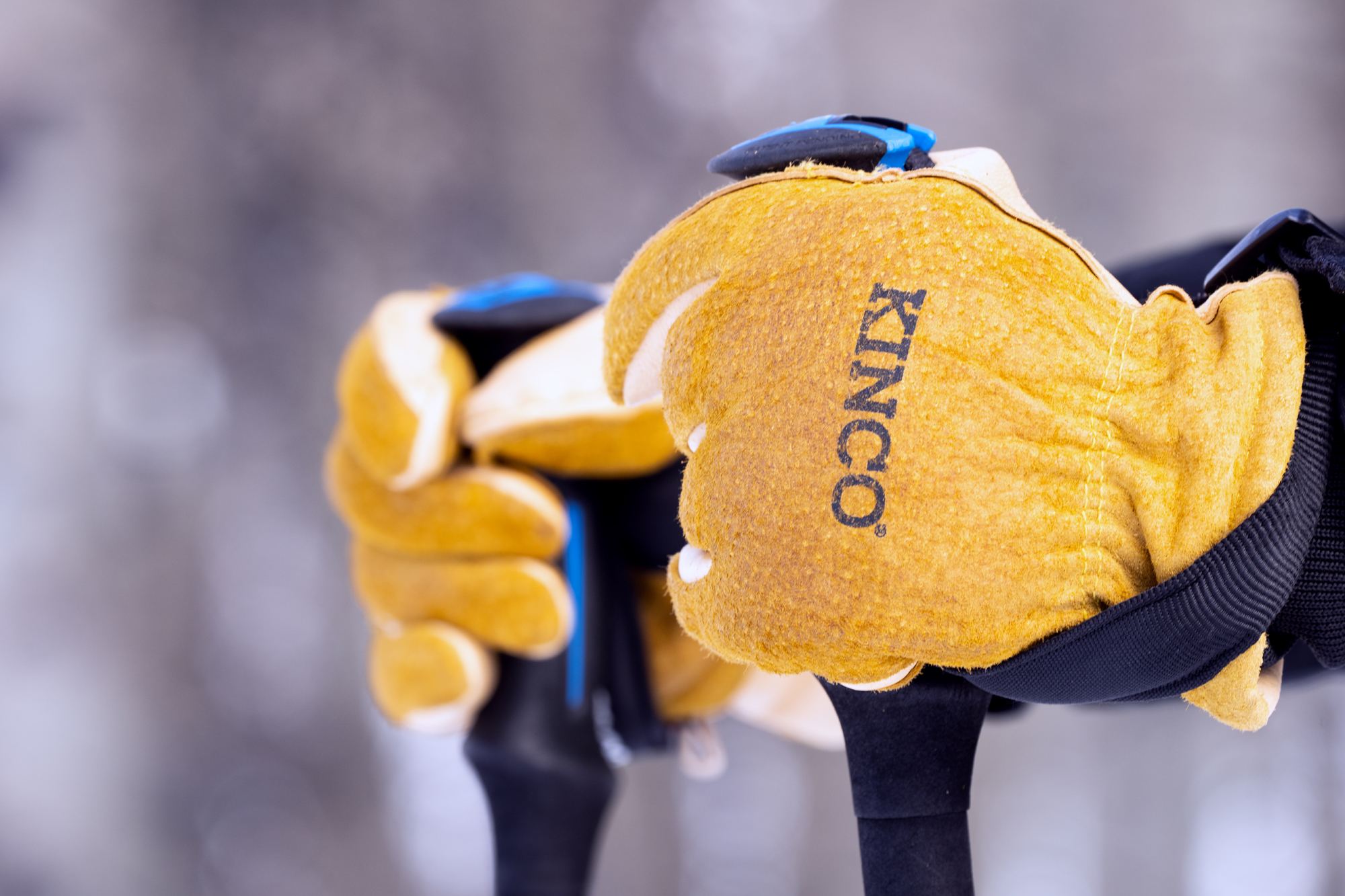

Choosing between ski gloves and ski mittens is a matter of how cold the temperatures drop and a bit of personal preference. Each option has pros and cons.
Gloves offer improved dexterity but reduced warmth. Because every finger can move independently while wearing gloves, this option is better for gripping ski poles and performing tasks with your hands. Some gloves are more streamlined, and the insulation varies broadly between designs.
Mittens are very warm, but they reduce dexterity. We don’t find mittens as easy to use for delicate and detailed applications like grabbing a slight zipper pull on a backpack, closing a buckle, opening a snack bar wrapper, or basic tasks on a phone screen.
However, once the ambient temperatures reach 10 degrees Fahrenheit and if there’s added windchill, we are hard-pressed to find a glove design that withstands brutally cold conditions as well as a mitten, which allows the body heat from your digits to circulate in a single shell. The warmest glove we’ve consistently used in such conditions is the Swany Men’s X-Cell Glove and the Swany Women’s X-Cell Glove.
Some hybrid options include mitten designs paired with glove liners, so you can pull your hand out for tasks without exposing your skin to the cold. There are also lobster-style gloves.


Most gloves on this list feature a waterproof membrane between the outer shell and the inner liner. If you want reliable waterproof gloves, we recommend purchasing a high-quality pair with a name-brand waterproofing system, such as GORE-TEX.
Some designs, such as the Kinco Lined Heavy-Duty Premium Grain & Suede Pigskin Ski Glove with Omni-Cuff, need to be surface-treated with a waterproof wax, such as the Nikwax treatment included with a pair of Kincos.
Ski gloves are designed for any winter sport, including snowboarding, downhill skiing, and backcountry snowmobiling.
Some snowboard brands, such as Dakine or Burton, manufacture gloves or mittens branded and aesthetically designed for snowboarders. Still, the product’s technicality and hand protection are comparable to other brands, whether that’s Flylow, Outdoor Research, or others.
Also, some riders prefer more dexterous gloves because snowboarders adjust their bindings on each run at the resort.
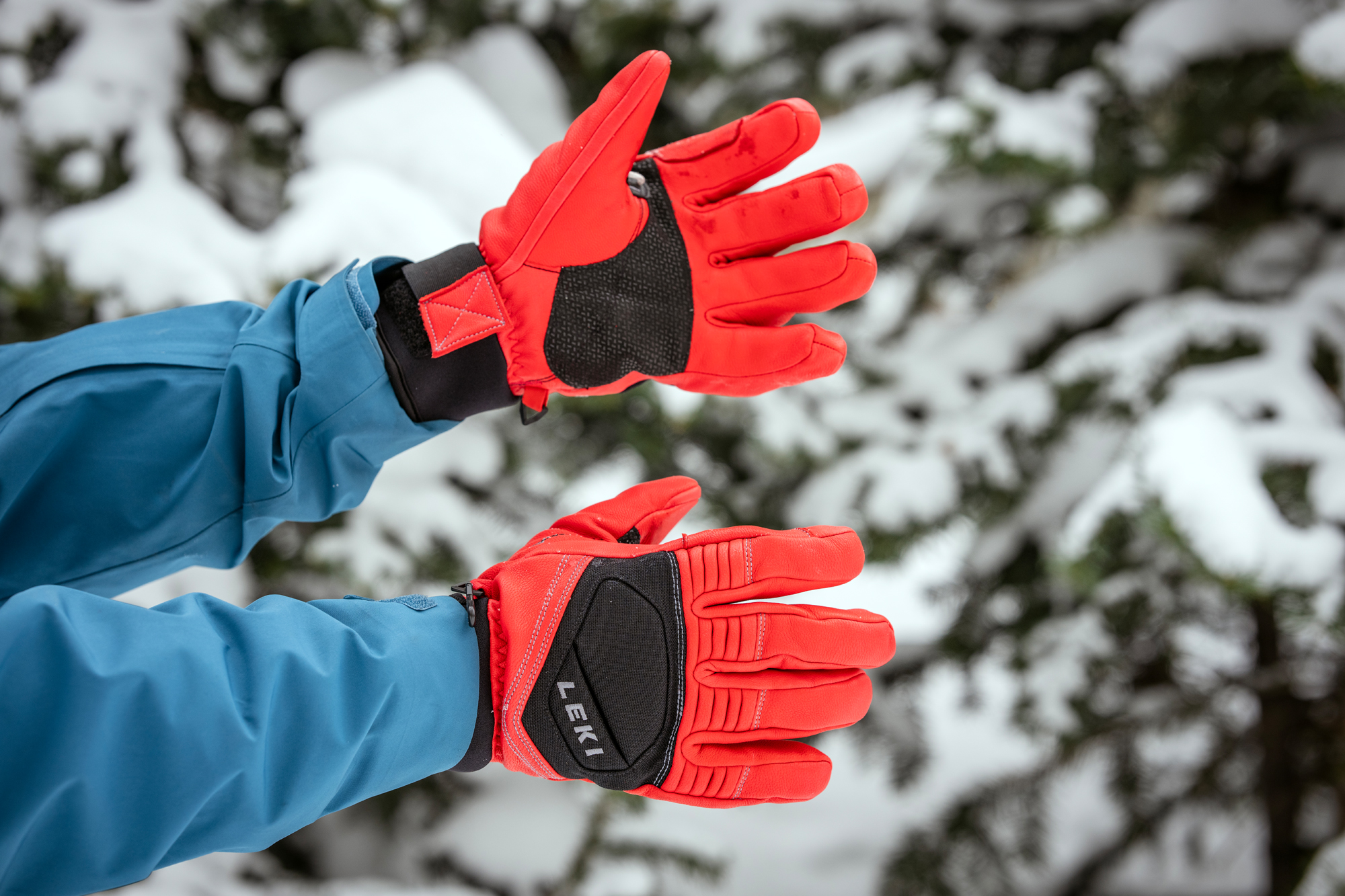

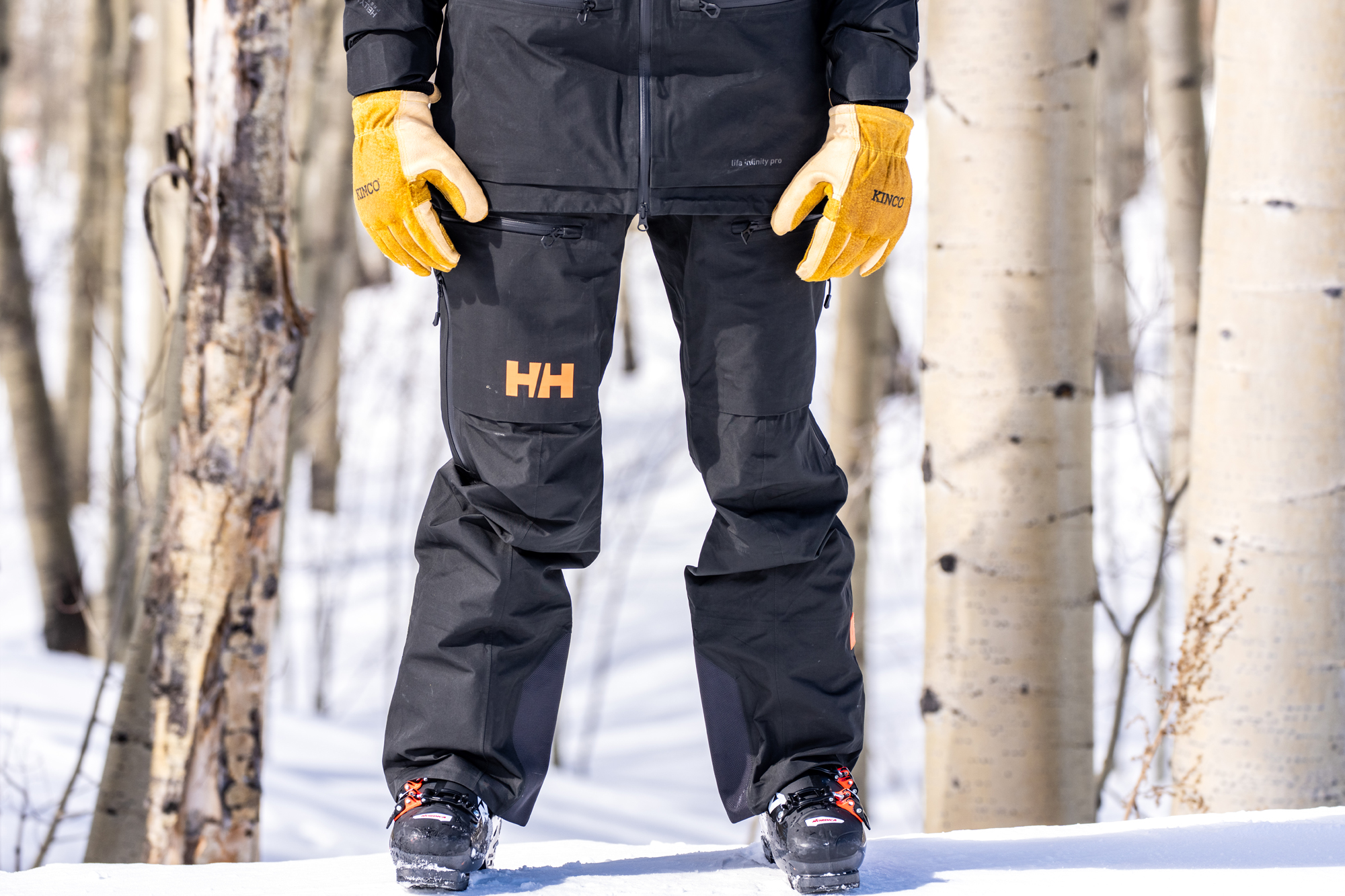

For the resort or backcountry, we found the best ski pants for a range of conditions including Flylow, Patagonia, Rab, and more.
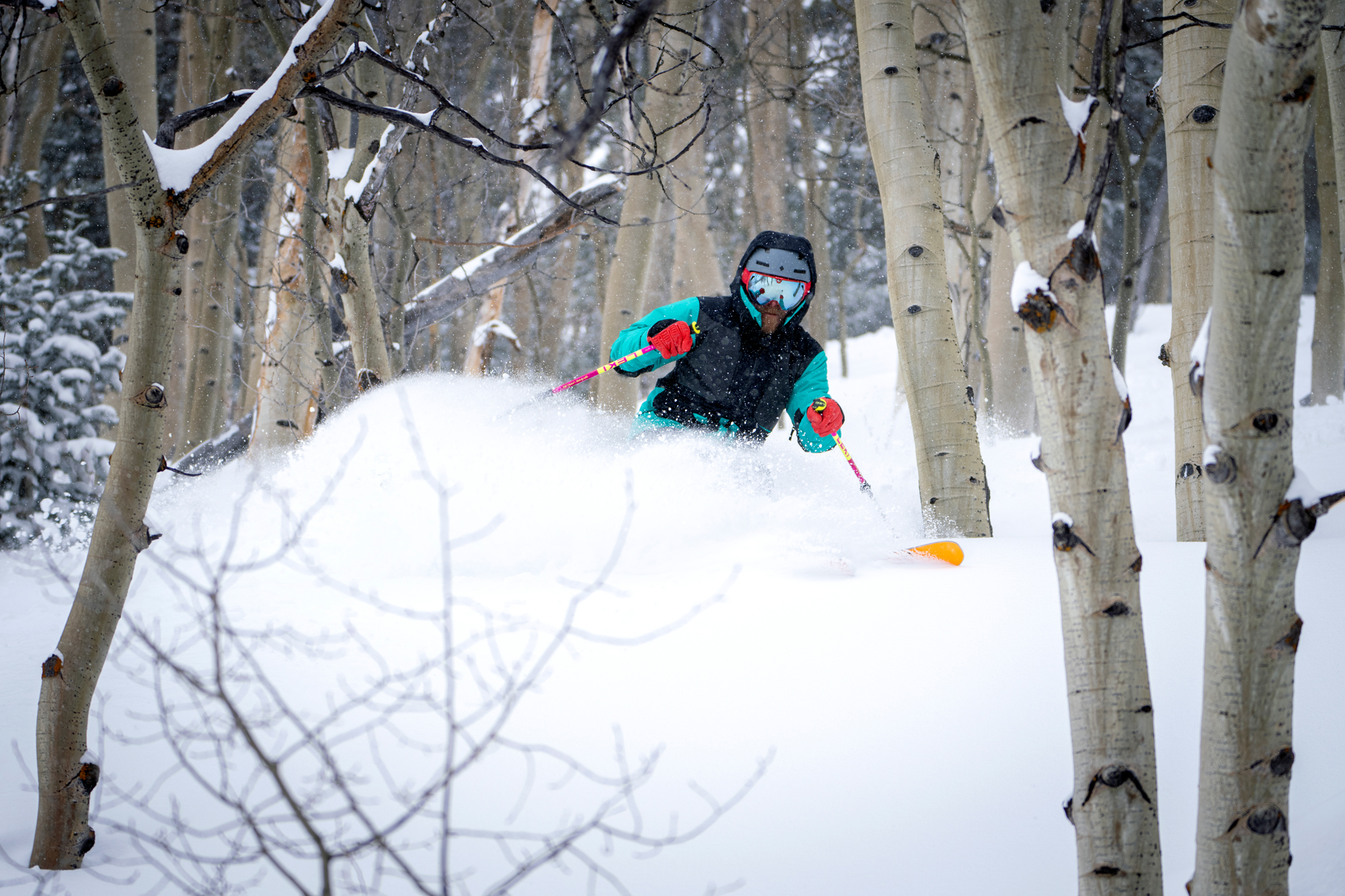

Whether you’re skiing in sunny or stormy conditions, we tested and found the best ski jackets including Patagonia, Arc’teryx, and more.
Read the full article here




